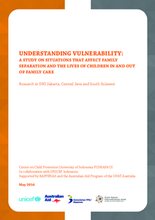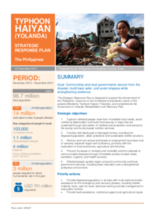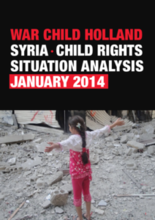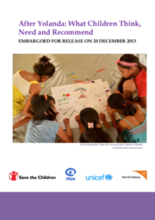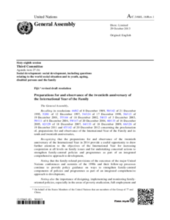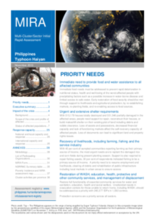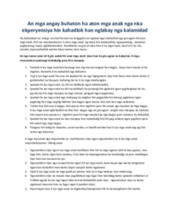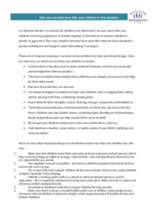Displaying 91 - 100 of 198
This report presents analysis and key findings from a study aimed at fully understanding the situations of children in Indonesia that may lead to family separation.
This report features the results of, and recommendations based on, a study conducted in Rwanda which investigates the links between the cash transfer program “Vision 2020 Umurenge Programme (VUP),” child well-being, and children’s care and family reunification.
A Strategic Response Plan developed and designed to support the Government of the Philippines’ response to the immediate humanitarian needs of the people affected by Typhoon Haiyan (Yolanda), and to complement the Government’s National Rehabilitation and Recovery Plan.
Through participatory information gathering tools, War Child Holland implemented a Child Right Situation Analysis to discuss and analyze the issues identified by Syrian children as the most important to them.
On 14th December, Save the Children, Plan, World Vision, working with UNICEF, organized consultations with 124 children and young people in Capiz, Cebu, Iloilo, Leyte and East and West Samar to listen to their views about the humanitarian situation six weeks after the Typhoon, find out what their priorities are and ask for suggestions to improve the response.
The United Nations General Assembly adopted on the 18th December 2013 a resolution on Preparations for and observance of the twentieth anniversary of the International Year of the Family.
A short case study by the Open Society Foundations on preventing the separation of children with disabilities from their families.
To better understand the impact of Typhoon Haiyan on affected population, more than 40 agencies conducted a multi-cluster initial rapid assessment (MIRA) in 9 provinces covering 92 municipalities and 283 barangays. The (MIRA) confirmed that the impacts of Typhoon Haiyan follow a relatively clear geographical pattern.
Key Messages for Caregivers in a Sudden Onset developed by the Global Child Protection Cluster in response to Typhoon Haiyan (Yolanda) in the Philippines
Key Messages for Caregivers in a Sudden Onset developed by the Global Child Protection Cluster in response to Typhoon Haiyan (Yolanda) in the Philippines

